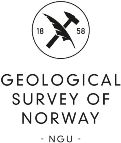

|
Norsk versjon | ||||
| THE INDUSTRIAL MINERAL DATABASE | |||||
| Deposit Area 1755 - 301 | |||||
| (Last updated 31.mar.2009) | |||||
Name of Deposit Area : Hundøyrån |
| (Object Id : 1755,301,00,00) |
| Drill Cores from the Deposit Area: See Borehole Area Hundøyrån |
| Location |
| County : | Nord-Trøndelag (17) | Municipality : | Leka (1755) |
| Map 1:50000: | Leka (1725-3) | Map 1:250000: | Vega |
| Marking point: | Longitude: | 11.6738280 | Latitude: | 65.0931230 |
| EU89-UTM Zone 32 | (Coordinates IS confirmed) |
| X-coord: | 625620 m. | Y-coord: | 7221492 m. |
|
|
| Commodity |
| Main Type: | Talc | Sub Type: | Talc |
| Production |
| Activity: | Exploration | Reserves: | ||
| Prod. method: | Production: | |||
| Prod. status: | Volume of dump: |
| Importance |
| Public: | Little Importance (reg. 18.02.2015) |
| Economical: | Minor interest , (Confirmed 31.mar.2009 by Are Korneliussen) |
Operations |
| From - To | Activity | Comments | |
| - 90 | Core drilling | Company/Institution :NGU |
Mineralization |
| Era: | Paleozoic | Period: | Ordovician | |
| Dating: | Method: | |||
| Genesis: | Regional metamorphic | Form: | Plate | |
| Main texture: | Vein network | Min. distribution: | Massive (>50 % ore minerals) |
| Main grain size: | Fine grained (< 1 mm) |
| Strike/Dip: | Direction: | |||
| Plunge: |
| Stratigraphic classification of host rock |
| Era: | Paleozoic | Period: | Ordovician |
| Province: | ||
| Geotec.unit: | ||
| Tectonic complex: | Helgelandsdekket | |
| Igneous complex: |
| Group: | Formation: |
Mineralogy |
| Relationship | Mineral | Amount | |
| Not defined | Talc | Major mineral (>10%) | |
| Not defined | Magnesite | Major mineral (>10%) | |
| Not defined | Chlorite | Subordinate mineral (1-10%) | |
| Not defined | Serpentine | Accessory mineral (<1%) |
Information(s) in free text format |
| Free text |
| The deposit is situated on the island of Leka in Nord-Trøndelag within the Leka ophiolite complex (Prestvik 1980). The deposit was investigated by NGU in 1990 in a co-operation between NGU and Norwegian Talc AS. 600 m were drilled in six holes (Olerud 1990). Two large horizontal lenses were detected. The "Upper lens" has an average thickness of 6.6 m and a probable tonnage of 890 000 tonnes. The ore is very fine-grained and consists of talc (~50%), breunnerite (~44%), chlorite (~2-5%) and chromite/ferrite-chromite (~2-3%). The whiteness of milled products is in general < 70%, while smaller areas have whiteness up to around 75%. From Karlsen og Nilsson (2000). |
Bibliography: |
| References not to be found in NGU's Reference Archive.: |
| Karlsen, T.A. og Nilsson, L.P. 2000: Talc deposits in Norway. NGU report 99.135, 103 p. + 41 figures. |
Fieldsamples |
| Sample No. | Sample type | Miscellanrous | |||
| A9 | Bedrock |
|
|||
| C8 | Bedrock |
|
|||
| 1a | Core |
|
|||
| 1b1 | Core |
|
|||
| 1b2 | Core |
|
|||
| 1b3 | Core |
|
|||
| 1C | Core |
|
|||
| 1D | Core |
|
| The fact sheet was created on 19.05.2024 |
| Questions or comments regarding the fact sheet can be emailed to: ressursdatabaser@ngu.no |
| Copyright © 2024 Geological Survey of Norway |